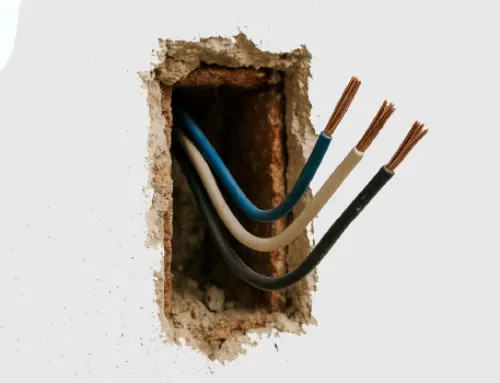Cost of Charging an Electric Car at Home by State & Make in 2025
by Greg Rabaey
13.2 min read

In the ever-evolving landscape of transportation, electric vehicles have emerged as a beacon of sustainability, long-term savings, and a cleaner future. With the promise of reduced emissions and lower operating costs, these innovative battery-powered machines have taken the roads by storm.
If you’re considering buying an electric vehicle or own one and are interested in the cost of alternative charging options, we’ve got you covered. From the variables determining electricity expenses to the most cost-effective way to charge your car at home, we delve into everything you need to know. Buckle up as we navigate the world of EV charging costs, answer your most pressing questions, and help you make informed decisions about your electric driving future.
Key Points of This Article:
- The cost of charging an electric car at home depends on the vehicle’s efficiency and local electricity rates.
- For example, at the national average of $0.17 per kWh, a Tesla Model 3 Long Range costs about $12.75 per full charge, while a GMC Hummer EV Pickup costs $36.16.
- Home charging options include Level 1 (slow, inexpensive) and Level 2 (faster, $1,200–$2,500 installation), with Level 3 fast chargers mainly used in commercial settings.
- Charging at home typically costs about half as much as fueling a gas car, and EV owners can save thousands in fuel costs over time.
The cost of charging an electric car at home
Charging electric vehicles on the go
Gas vs. electric vehicles: which costs more?
The cheapest way to charge an electric car at home
The cost of charging an electric car at home
When it comes to the cost of charging an EV at home, there’s no one-size-fits-all answer. While home charging is generally more cost-efficient and convenient than public charging, the interplay of various factors, such as your car’s energy efficiency and electricity expenses in your state will determine the price of plugging in and powering up. Here are the parameters you’ll need and how to calculate the expected cost of your EV.
Vehicle efficiency
Efficiency for EVs is measured in Miles per gallon of gasoline-equivalent (MPGe). The Environmental Protection Agency developed this unit of measurement to help compare the energy consumption level of electric vehicles with their gas-powered counterparts. While 35 miles per gallon is generally considered great mileage for a gas-powered car, many EVs achieve 100 MPGe.
Different electric vehicles vary in fuel efficiency. To calculate the cost of charging your EV, you need to find how many kWh (kilowatt-hour) per 100 miles your vehicle, or desired vehicle, consumes. If you already own an EV, you can find this information on your car’s window sticker, otherwise you can find it on the Fuel Economy website.
This website is a great resource for seeing how much energy different electric cars use to travel a certain distance. For example, the Tesla Model Y and Chevy Bolt EV/EUV use 28 kilowatt-hours of energy to go 100 miles, while the Ford Mustang Mach-E uses 37 kilowatt-hours for the same distance. You can also compare different car models of interest to see which are most energy-efficient.
Electricity costs
The price of electricity plays a significant role in determining how much charging an electric car at home costs. However, electricity rates vary across different regions, meaning the price of charging is more affordable in some localities than in others. To learn what you pay for electricity in your area, take a look at your electric bill and locate the cost per kWh.
Next, divide the total cost of your bill (including charges like delivery, taxes, and fees) by the kWh consumed that month. This number reflects what you paid for energy per kWh. Alternatively, you can get a general estimate of electricity rates where you live by checking the Energy Information Administration’s state-by-state energy cost guide.
The price of energy can fluctuate from month to month, so it’s best to look at bills from all four seasons to find the average kWh cost you can expect throughout the year. As per the EIA’s energy cost guide, national kWh rates typically range from $0.10-$0.42 per hour, with an average of about $0.16 per hour. Some electricity providers offer reduced rates during specific times of the day, so checking in with your provider can help you make informed decisions and discover the most cost-effective way to charge.
Calculating the cost for your EV
Once you know how many kWh your electric car will require to go 100 miles and the cost per kWh in your area, you can simply multiply both numbers to find the price of charging your EV. For example, if your car consumes 28kWh per 100 miles and you live in Ohio, where kWh costs $0.1582, the cost to drive 100 miles (28 x 0.1582) would be $4.43.
Here is a cost breakdown for five popular electric cars, assuming the national average electricity rate of $0.17 per kWh.
Cost to Charge an Electric Car at Home by Model (at $0.17 cents per kWh)
| Model | Average Range of a Full Charge | Battery capacity (kWh) | Cost per full charge | ||
| Tesla Model 3 Long Range | 338 miles | 75 kWh | $12.75 | ||
| 2025 GMC Hummer EV Pickup | 390 miles | 212.7 kWh | $36.16 | ||
| Hyundai IONIQ 5 N | 253 miles | 84 kWh | $14.28 | ||
| Kia EV9 GT-Line | 306 miles | 99.8 kWh | $16.97 | ||
| 2025 ID.4 | 206 miles | 62 kWh | $10.54 |
How charging your EV at home affects your electricity bill
Charging an EV at home will increase your electricity bill, but it’s often more economical than buying gas.
The extent of the increase depends on how often you charge your car and local energy rates. Many EV owners find that their overall transportation costs decrease despite the rise in electricity use.
For example, the average monthly electricity consumption for residential homes is 899 kWh. If you charge your 2024 Kia EV9 GT-Line to full charge 4 times a week with a battery range of 306 miles and your energy rate is $0.17 per kWh, you will add $271.73 to your monthly energy bill.
Home charging stations
There are two main options for charging an EV at home, catering to different needs and budgets. Most electric vehicles come with a Level 1 charging cable that plugs into a standard 120-volt household outlet. It will take about 40-50 hours to charge a battery electric vehicle 80% from empty and 4-6 hours for a plug-in hybrid, which makes it the slowest option. However, because outlets are typically in residential garages already, home charging is convenient and ideal for those who have time to charge their cars overnight or have limited daily driving needs.
The other option is Level 2 charging, which is faster — about 4 hours — but more expensive. The price of a Level 2 charging unit and installation fees will run you anywhere from $1,200 to $2,500. That said, having a Level 2 electric car charger at home can add resale value to your property, and once installed, the cost of using it will be about the same as a Level 1 charger.
Charging equipment costs can be reduced with federal, state, local, and utility-based incentives. So, if you’re interested in buying a Level 2 charger but are hesitant to make an additional investment, it would definitely be worth looking into incentives in your area.
How to charge an electric car at home
Charging an electric vehicle (EV) at home is a straightforward process. Level 1 chargers connect to a standard household outlet and are ideal for overnight charging, providing a slower but consistent way to replenish your car’s battery. For faster charging, Level 2 chargers are an excellent option, though they require additional investment for both the charger and professional installation, typically involving a 240-volt outlet.
How to charge an electric car without a garage
Charging an electric vehicle (EV) without a garage is entirely possible with the right setup. You can use an outdoor-rated charging station with weatherproof protection to safely charge your vehicle in open areas. Installing a dedicated charging post in your driveway is another practical solution, offering convenience and accessibility. Additionally, you can explore community charging programs or shared charging facilities in your area, which provide alternative options for keeping your EV powered up.
How much it costs for an electric car charging home installation
Installing a charging station at home offers significant convenience for EV owners, but it does come with upfront costs that vary depending on the type of charger. Here’s what’s in store if you’re considering a home installation:
Level 1 electric charging home installation costs
If you’re considering installing an at home EV charger, Level 1 chargers are going to be your best bet. Level 1 chargers often don’t require installation, as they plug into standard 120-volt outlets, eliminating the need for professional assistance.
You can purchase a Level 1 charger at most major retailers for around $130-$230. However, if your home requires additional wiring or outlet upgrades to support EV charging, you may face minor installation costs.
Level 3 and Level 2 electric charging home installation costs
In contrast, Level 2 chargers need specialized equipment and professional installation. The equipment alone to purchase a Level 2 EV charger typically costs between $500-$700.
As an added expense, Level 2 chargers require at least 240-volt circuits to charge. If you don’t have the capacity to handle this charge, you’ll need to install an upgraded breaker box. This installation can cost anywhere from $200-$500.
If you need updated wiring to handle your charger, you can expect to pay an additional $1,000-$1,500 for an electrician’s labor and materials if you’re not a professional.
On the bright side, Level 2 chargers can charge your vehicle to 80% in 4-10 hours which is much faster than a Level 1 charger that typically charges an EV to 80% in about 40 to 50 hours.
Level 3 chargers, also known as DC fast chargers, are primarily used in commercial or public settings due to their high cost and power requirements. However, they can be installed at home in some cases.
Level 3 chargers cost between $12,000-$45,000 to install since they require substantial electrical upgrades, such as a dedicated transformer and additional wiring. Level 3 chargers can charge an EV to 80% in 30 minutes to 1 hour, making them the fastest option available.
How to install an at-home charging station
Adding a Level 2 charger to your home is a great way to speed up EV charging, but it requires careful planning and professional installation. The process begins with assessing your home’s electrical system to ensure it can handle the additional load from the charger.
Next, you’ll need to choose a charging station that’s compatible with your vehicle and meets your specific charging needs, such as speed and convenience. Finally, it’s essential to hire a certified electrician to perform the installation safely and ensure it complies with local codes and regulations.
Charging electric vehicles on the go
While the most cost-effective way to charge your EV is with a Level 1 or Level 2 charger at home, it’s not always realistic. The most common way to refuel your electric car on the road is with a Level 2 or Level 3 charger, with prices varying from free to expensive. Here is a general overview of public charging options available.
Level 2 charging
Level 2 is the most common form of public charging, as stations can be found in public parking garages, retail parking lots, and throughout cities with a high concentration of EVs. Stations have different pricing models based on factors, including the amount of energy transferred, the time you’re connected, a per-session fee, or membership options. You can easily locate charging stations on online maps, various apps, and dedicated EV charging networks.
Level 2 charging stations offer a practical way to fill your battery up while running errands or on the go, but can also pose various challenges. Availability can vary by location, wait times and competition can increase during peak hours, and the required charging time isn’t feasible for long road trips.
Level 3 charging
Level 3 (or DC fast charging) is the most efficient way to top off an electric car battery, capable of reaching up to 80% capacity in 20 minutes to an hour. However, these high-powered stations are more expensive to install and maintain, making them pricier for consumers. Level 3 stations are typically located along highways, major travel routes, and strategic areas to help support long-distance journeys and reduce range anxiety.
To give you an idea of how costly Level 3 charging can be, rates at fast-charging station network EVgo range from $0.25-$0.29 per minute depending on if you have a subscription. If you’re not a subscriber, a 25-minute charge would add 50 miles in range to a Volkswagen eGolf for about $7.25.
Free charging
In order to attract potential customers, promote environmental sustainability, and ensure the continued growth of electric transportation, many free fast-charging options are available. Leading automakers, for instance, offer various free fast charging allotments like unlimited 30-minute fast charging sessions for two years on designated networks like Electrify America and EVgo. Additionally, several workplaces offer free Level 2 charging as an employee incentive, and some retail centers provide complementary charging while shopping.
Gas vs. electric vehicles: which costs more?
The cost of gas and electricity both fluctuate regularly, but it typically costs half as much to charge an electric vehicle at home than to fill an ICE (internal combustion engine) tank. In addition to a substantially lower cost per mile driven, EVs also require less maintenance and are eligible for government incentives. Therefore, while gas-powered vehicles typically have lower upfront prices and insurance costs, electric cars can offer a greater advantage in the long term — with reduced fuel costs potentially saving you $4,700 in the first seven years alone.
The cheapest way to charge an electric car at home
The most cost-effective way to charge an electric car is by using a standard electrical outlet in your home (Level 1 charging). To combat rising energy costs and ensure you’re getting the most bang for your buck, check your provider’s policy to see if they offer reduced electricity rates throughout the day. Even better, you can charge with peace of mind by getting an unlimited energy plan with a set monthly cost.
FAQs
How much does it cost to charge an electric car for 300 miles?
The cost to charge an electric vehicle for 300 miles depends on various factors such as charging type, fuel efficiency, and electricity rates. Fully charging a car that gets 3 miles per kWh at home can cost about $16 on average, while public charging options range from free to significantly more expensive.
What’s the average cost to charge an electric car at home?
The average cost of charging an electric car at home can vary depending on the electricity rates in your location and the fuel efficiency of your car. Assuming the efficiency of 3 miles per kWh and the national average electricity cost of $0.16 per kWh, it would cost $16 to charge your car for 300 miles at home.
How long does it take to charge an electric car’s battery?
The time to charge an electric car’s battery can vary depending on the charging level (Level 1, 2, or 3) and the vehicle’s battery capacity. Level 1 charging can take anywhere from 8-24 hours, Level 2 charging takes about 4-8 hours, and high-powered Level 3 charging can take as little as 30-60 minutes.
How often do you need to charge an electric car?
The frequency of charging an electric car depends on the vehicle’s battery capacity, your driving habits, and the desired range. In general, charging your EV overnight is sufficient for daily commuting, while regular refueling stops will be required for longer journeys.
An electric vehicle is an exciting investment, and understanding the cost of charging is essential to making informed decisions. The varying factors influencing charging expenses across the country mean the answer to “How much do electric cars cost to charge at home?” is not one-size-fits-all. Your location, vehicle’s fuel efficiency, driving habits, and charging station level will all come into play.
One of the most cost-effective ways to charge your EV at home is with the right electricity plan. Discover the best energy solution for your home and vehicle by exploring Santanna’s fixed-rate, earth-friendly, and unlimited energy plans.
Greg Rabaey is the retired CEO of Santanna Energy Services and a respected leader with more than 30 years of experience spanning technology and the energy industry. With a strong academic background in mathematics, computer science, and physics, including a Ph.D. in Physics from the University of Arizona, Greg brought analytical rigor and forward-thinking leadership to every stage of his career.
During his tenure at Santanna Energy Services, Greg played a pivotal role in shaping the company into a consumer-centric energy provider, delivering electricity and natural gas to homes across the Midwest. His strategic vision, commitment to innovation, and dedication to both employees and customers helped drive the company’s growth and expand its earth-friendly and unlimited energy offerings.
Now retired, Greg remains proud of the foundation he helped build and the lasting impact of Santanna’s mission. Outside of his professional achievements, he is known for his strong commitment to community involvement and his belief in driving positive change through leadership, integrity, and service.







